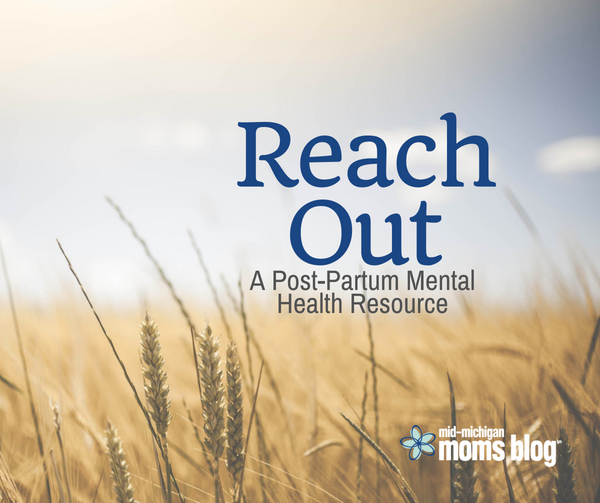Boundaries. Do you have them firmly in place throughout your life? I didn’t, and I’m still a work in progress when it comes to setting my limits and giving myself some space and grace. It hasn’t been an easy process, but I’ve found that setting up boundaries for myself in every aspect of my personal life – with friends, family, and {yes} even my kids – is essential for me to function as a happy, healthy and well-adjusted person!

What are boundaries, and why are they so hard to set?
By definition, a boundary is “something that indicates or fixes a limit or extent”. A personal boundary is just that – your limit, or stopping point in any given situation.
What makes setting personal boundaries so hard is that you yourself have to indicate the limit. There’s no fork in the road, or huge boulder forcing a natural and identifiable stop.
Instead, the onus is on you and you alone to 1) determine your boundary lines; and 2) figure out how to consistently and effectively indicate your limit to others in a respectful yet ‘I mean business’ type of way.
If you’re a natural people pleaser and/or an empath like me, you don’t like to rock the boat or make others feel bad. Plus, many of us were raised with a good-behavior-reward system; we learned early on to expect praise or a reward of some kind for behavior that was deemed “good” or pleasing. That system can subconsciously permeate how we relate to and interact with others, even as adults. Which is why setting boundaries for ourselves seems to go against the grain.
Do we need boundaries?
Maybe you aren’t seeking boundaries in your life. Or, for whatever reason, you might naturally have them in place already {kudos to you!}. Everyone is different and there’s not a one-size-fits-all approach. For me, boundaries are essential. Yet, I’ve consistently struggled to define my boundaries, and have a terrible track record of maintaining them. It’s taken many years for me to be confident enough to consistently and effectively indicate my hard stop. I read somewhere that this means I have “weak” boundaries. Being a strong woman, this initially irked me a little bit {ok, a ton!}. But it’s a truth that I’ve come to own, and an area of continual self-improvement for me.
Where do I begin?
My mom and a few of my very close friends have amazing boundaries. I’ve taken my cue from them, and put my own personal spin on my approach to defining my space and setting my limits. If you’re looking to set your own boundaries, that’s a great place to start – with your people. Those with whom you have a mutual love and respect with accept your ever-evolving self as you begin to set your boundaries; at the same time, they will be honest and forthright with you if something doesn’t seem to jive. {I love that my people call me out when I need it; this is why they’re my people!}
Understanding your personality when setting your boundaries is extremely helpful as well. Taking the time to understand your children’s personalities, too, is well worth the effort. While it requires more work on your end, I’ve found that this component makes for a much more well-rounded and positive overall experience for everyone. I talk about this in more detail, and share some helpful links, in the tabbed categories below.
What boundaries look like
Again, everyone is different! Below, broken down into categories, are a few examples of what boundaries have looked like for me thus far. It’s not an all-encompassing list, especially as I’m still learning and growing on this journey. To that end, I’d love to hear what you might add, and how you’ve approached setting boundaries in your own life. Share it with us in the comments below!
It might be helpful to determine your personality type here if you don’t already have a firm grasp on your Enneagram or whatever form of external assessment you prefer. As an Enneagram type 3, with a close 1, I liked to be liked and it’s important for me to be highly regarded by my friends. It means I’m a perfectionist who has a hard time saying no, which can lead to personal burnout. I’m also an introverted extrovert, meaning I love to have fun and be social until I reach a definite point where I just need a break to recharge and refuel. This personality combination can be exhausting at times, especially if I’m not being self-aware! Enter boundaries, and over the years, I’ve found that it’s just best to be honest.
This is what that might look like:
- “Thank you for the invite. I’ve been out each night this week and just need a break.”
- “I would love to volunteer for that committee, but I have too much on my plate right now.”
- “I wish I could be there, I’d love to see everyone. But tonight is a family night for us.”
- “Thank you for thinking of me. I can’t fit that into my schedule right now, but please remember me in the future.”
- “No thank you, but I appreciate the offer.”
- “That day/time/etc. doesn’t work for me. Let’s plan something for another day/time/etc.”
Ohhhh this is tricky! My family will always call me out if they don’t agree with something that I do or say. My inlaws and even friends-that-are-family will as well because they’ve known me for many years, they love and respect me and we are family, too! I appreciate this. But it can sting. Especially because I like people to like me {see Enneagram type 3}, this can lead to flimsy boundaries. I know so many of you can relate!
Family boundaries are completely dependent on your family dynamic. We all come from different molds, backgrounds, and situations. In general, this is what some of my boundaries might look like:
- “I made dinner and I’d like to sit down for a minute. Can you please clean up the kitchen and dishes?”
- “I’d like to take an hour on Saturday to get a pedicure/take a run/meet my girlfriends for brunch. Does that work with our schedule?”
- “I have some work to do. Can I please have an uninterrupted hour?”
- “We have a {insert your sports team here} game that evening, and {insert your child’s name} has made a commitment to his/her team. Can we choose another night for dinner?”
- “That’s nap time for us, but we will join the {insert name of family gathering here} as soon as we can.”
- “I would be happy to help you, but I need to complete my task first.”
- “I can’t host {insert any holiday} this year. When my kids are a little bit older and I have more time, I’d be happy to revisit the idea.”
- I’d love to help, but can you see if {insert name here} is available this time?”
- “I’m sorry, I’m just exhausted after this week. I can’t make X. I really need some time with my family/with my husband/to myself.”
It’s not a bad idea to try to understand your kid’s love language or personality before you approach boundaries with them. The Myers Briggs personality test is always interesting but may not work well for younger children; you know your child best here. My tween is an ESFP on the Myers Briggs scale, meaning he feels most loved when his behavior and actions are affirmed, and when he feels and knows that he is receiving unconditional love and affection from my husband and myself. His love language is Quality Time, so I have to be very careful about how I approach my boundaries with him. And of course, each child is different! Taking the time to understand my kids as I set boundaries allows me to customize my approach, making sure that the end result is a positive experience for everyone!
As a work-from-home-mom, my personal boundaries can be very hard to enforce and maintain. When my kids are home with me, it’s a challenge for me to make them understand that I’m not always available. It’s been a work in progress! Below are some examples that I use with my tween, described above:
- “I would love to see the progress that you’d made in your video game. I need to finish my work and then my time is yours.”
- “Please press your pause button. I want to hear what you’re saying, but I’m in the middle of another conversation right now. I can’t give you my full attention until I’m finished.”
- “That’s great, I’m so proud of you for accomplishing X. I want to hear all about it, but right now is not the appropriate moment because of X.”
- “I would love to read a story with you. Let’s pick a time later this evening when things calm down.”
- “I’d love to do more/hear more/see more. Right now I need some peace and quiet. Check-in with me in thirty minutes.”
- “I have a conference call that will last one hour. I cannot be interrupted. When I am finished, we can talk about X/do X/etc.”
- “I did X chore. Because we share responsibilities in our home, can you please fold the laundry/unload the dishwasher/pick your chore?”















